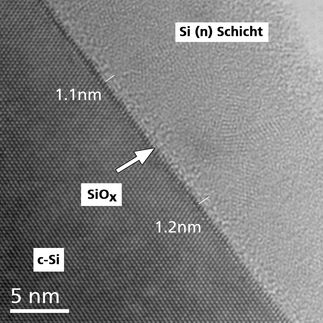Non-toxic solvent removes barrier to commercialization of perovskite solar cells
Advertisement
Scientists at Oxford University have developed a solvent system with reduced toxicity that can be used in the manufacture of perovskite solar cells, clearing one of the barriers to the commercialisation of a technology that promises to revolutionise the solar industry.
Perovskites - a family of materials with the crystal structure of calcium titanate - have been described as a 'wonder material' and shown to be almost as efficient as silicon in harnessing solar energy, as well as being significantly cheaper to produce.
By combining methylamine and acetonitrile, researchers have developed a clean solvent with a low boiling point and low viscosity that quickly crystallises perovskite films at room temperature and could be used to help coat large solar panels with the material.
Dr Nakita Noel of Oxford's Department of Physics, lead author of the study, said: 'At the moment, there are three main solvents used in the manufacture of perovskite solar cells, and they are all toxic, which means you wouldn't want to come into contact with them.
'Additionally, the most efficient perovskite solar cells are currently made through a process called solvent quenching - a technique that is not easily transferred from lab-scale deposition techniques to large-scale deposition techniques. While vapour deposition of these materials can overcome this problem, it will come at additional costs. One of the main selling points of this material is that it is cheap and can be easily solution-processed.
'We have now developed the first clean, low-boiling-point, low-viscosity solvent for this purpose.'
Dr Noel added: 'What is really exciting about this breakthrough is that largely reducing the toxicity of the solvent hasn't led to a reduction in the efficiency of the material in harnessing solar energy.'
In recent years, perovskite-based solar cells have raced to the front of emerging photovoltaics, already competing on efficiency against well-established solar technologies such as the inorganic thin-film and multi-crystalline silicon used in solar panels around the world. Perovskites also have the shortest 'energy payback time' - the time taken for a material to save the same amount of energy that was expended in its production. It has been said that the sun supplies enough power in 90 minutes to meet the world's total energy needs for a year.
Study co-author Dr Bernard Wenger, also of Oxford's Department of Physics, said: 'While we are probably still a few years from seeing perovskite-based solar panels on people's roofs, this is a big step along the way.'
Professor Henry Snaith, senior author on the paper and leader of the photovoltaics group at Oxford, has been a pioneer in the development of perovskite solar cells and was one of the first researchers to recognise their potential as a low-cost, highly efficient material for this purpose.
Original publication
Noel, Nakita K. and Habisreutinger, Severin N. and Wenger, Bernard and Klug, Matthew T. and Horantner, Maximilian T. and Johnston, Michael B. and Nicholas, Robin J. and Moore, David T. and Snaith, Henry J.; "A low viscosity, low boiling point, clean solvent system for the rapid crystallisation of highly specular perovskite films"; Energy Environ. Sci.; 2016

































































